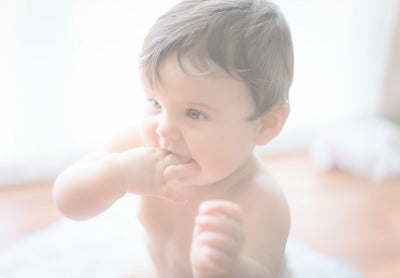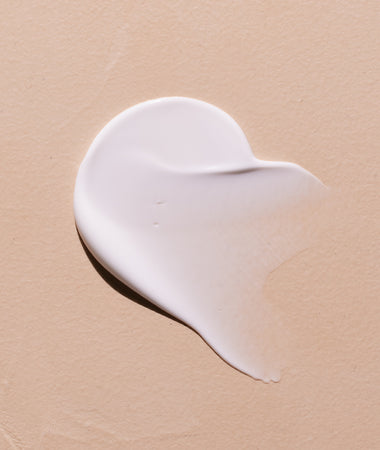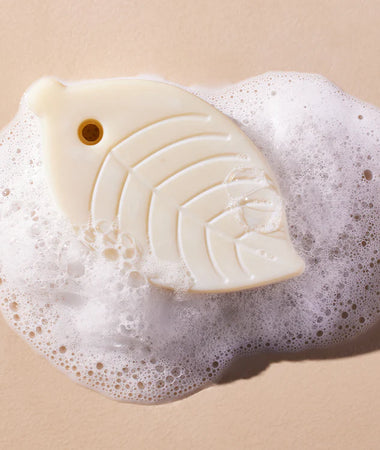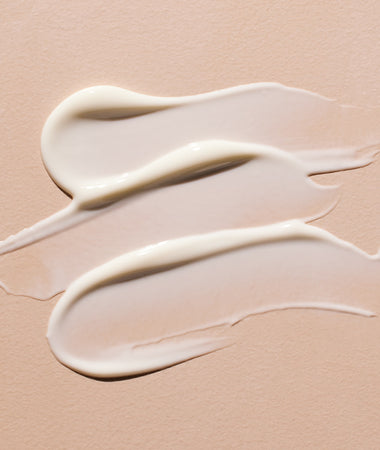
Caring For Your 9 Month Old Baby
It may seem hard to believe, but three-quarters of your baby’s first year has come and gone. You’ve given them plenty of love and TLC, and now you’ve got a happy, healthy, precocious, and energetic 9 month old baby on your hands. What could be better?
But each month of growth brings new changes for your baby, and the nine-month mark is no exception. So what can you expect from your 9 month old baby? What should you look for in regard to growth, motor skills, and sleeping habits? Will there be any changes from last month?
In this article, the baby experts at Mustela will answer those questions and tell you everything you need to know to continue providing the very best care for your 9 month old baby. Along the way, we’ll discuss such topics as:
- Speech production
- Language recognition
- Growth
- Emotions
- Development of fine motor skills
We’ll also talk about feeding and sleeping habits, immunizations, when to visit the doctor, general childcare tips, how to stay well as a parent, and much more.
Caring For Your 9 Month Old Baby
It wasn’t too long ago that your baby was completely dependent on you for everything. All they could do was sleep, eat, and dirty up a diaper. While your 9 month old baby certainly still does those things, they’re now able to do so much more too.
Your 9 Month Old Baby’s Development
Brain
At nine months, your baby’s brain and body are growing by leaps and bounds. Their brain is working in high gear to form trillions of tiny connections (synapses) that will assist them in learning all about the world around them.
What can you do to help? Provide a stimulating environment for them to explore. Include plenty of toys that:
- Are brightly colored
- Exhibit unique textures
- Make baby-friendly sounds
- Move easily (e.g., cars, Weebles, dolls)
Above all, don’t forget about how important you, the parent, are to your baby’s development. No amount of expensive toys can replace the stimulation of reading, singing, and talking to your little one every day.
Body
Similarly, your 9 month old baby’s body is going to continue changing dramatically in the weeks ahead. Babies of this age literally grow overnight thanks to an increase in growth hormones released while they sleep.
Depending on your baby, you may need to start dressing them in the next size up. That said, some babies may not need new clothes and can get along with the same items they’ve been wearing since month seven.
Either way, don’t be alarmed. Every baby grows at their own rate. As long as your little one is happy, energetic, and still gaining weight (even in small increments), there’s nothing to worry about.
Language
Be on the lookout for your 9 month old baby’s first word. Up to this point, the noises your baby makes may just sound like babble. But around the ninth month, you may start to recognize words like:
- Mama
- Dada
- Hi
- Bye
In addition to making their own words, your 9 month old baby may be able to understand more of your words. If you ask a simple question like, “Where’s the ball?” or, “Where’s the cat?”, your little one may go pick up or point to that item.
Baby Massage For Development

If you haven’t been giving your little one baby massages, now is the perfect time to start!
Baby massages can help calm your little one, promote sleep, and provide a great bonding experience for the two of you. But the great thing is that giving your baby a massage can also aid their development!
Massaging your baby can help with both mental and physical development because it increases their awareness of body position and movement and gets their muscles moving and blood circulating.
But the benefits of baby massage don’t stop there! Narrate the massage as you go and you’ll also help boost your baby’s language skills.
To learn about different types of baby massages and how to give them, read our article here.
And don’t forget to use a safe, natural oil, like Mustela’s Baby Oil, so you can moisturize your baby’s skin while massaging.
This hypoallergenic oil is composed of 99% plant-based ingredients and is free of parabens, phthalates, and phenoxyethanol. Plus, it’s enriched with an elixir of pomegranate seed oil, sunflower seed oil, and avocado oil.
Your 9 Month Old Baby’s Senses

By nine months, your baby’s five senses (smell, taste, sight, touch, hearing) should be completely developed. That’s not to say that they won’t change over the coming months and years, but, at this point, your baby should be able to react to all forms of stimulation.
Perception
Where you may notice some change in your 9 month old baby is in their perception. Specifically, in their ability to perceive your emotions. Some babies will even try to make you smile and laugh at times by bringing you their favorite toy or making funny sounds.
Be positive and reassuring even when your little one is learning new skills. And don’t let your anxiety interfere with your 9 month old baby’s need to explore.
Anticipation
Your 9 month old baby’s memory has come a long way since birth. Your little one can now anticipate when something will happen. One of the first things they begin anticipating is you leaving the vicinity.
When this happens, your child’s mood may suddenly change. This is due to the separation anxiety that develops around month seven. And with an increase in anticipation abilities, your baby may notice when you’re getting ready to leave.
Your 9 Month Old Baby’s Motor Skills

Fine Motor Skills
Your 9 month old baby’s fine motor skills will continue to develop over the course of the next month. This comes in two forms:
- Picking up smaller items than before
- Coordinating movements with both hands at the same time
Encourage these skills by providing both small (but baby-safe) and large toys for your baby to handle. The small toys will help with grasping, and the large toys will help with coordination.
Standing
Around this time, your 9 month old baby may start to experiment with standing instead of crawling. They’ll use stationary objects (a table, your legs) to pull themselves into a standing position.
Your little one won’t be able to do much beyond that without support, but you can encourage exploration of this skill by holding them up and helping them toddle around.
Your 9 Month Old Baby’s Feeding Habits
Food
With the improvement in your 9 month old baby’s fine motor skills, they can handle smaller food on their own. Similarly, as their baby teeth continue to come in, they’ll be able to chew more solid foods.
Cereals and teething biscuits provide nutritional benefits and give your baby the opportunity to practice picking up small objects and moving them to their mouth. Just be sure to avoid feeding your little one foods that won’t quickly dissolve in their mouth.
Drink
You can also encourage the development of your 9 month old baby’s feeding habits by providing them with a sippy cup and a spoon during meals. This is a great time to start weaning your little one off the bottle and replacing it with a sippy cup.
Your 9 Month Old Baby’s Sleeping Habits
Bedtime
By nine months, your baby’s sleeping habits should stabilize. They may take fewer naps, and they should be able to sleep through the night barring any extenuating circumstances, like teething or an illness.

You can encourage good sleeping habits by establishing a regular bedtime, including a special routine, for your 9 month old baby. Gather up a cuddly blanket or stuffed animal, sit down in a comfy chair, and read your baby’s favorite book before bed.
Expert tip: If your little one suffers from eczema or sensitive skin, try dressing them in our Stelatopia Skin Soothing Pajamas. These 100% cotton pajamas deliver skin-soothing moisture so your baby can sleep soundly all night long!
Your 9 Month Old Baby’s Immunizations
There are no immunizations recommended for your 9 month old baby as long as they have had their two-, four-, and six-month round of shots. The next set of immunizations doesn’t come until the 12-month mark.
To encourage the development of your 9 month old baby’s immune system, stop sterilizing bottles, cups, and dishes. You’ll still wash them thoroughly with hot water and soap. But by nine months, you don’t have to take the extra step to sterilize everything.
General Childcare Tips
Diaper Changing
Your nine month old is still in diapers — and will be for quite some time. Whether you’re using cloth diapers or disposable diapers, keep up the good work! Keep your baby’s bottom clean, and apply a soothing diaper cream to ward off irritation and diaper rash.
Reach for Mustela’s Cleansing Wipes to gently and effectively clean your baby’s bottom (hint: you can also use these wipes to give your baby’s face or body a wipe-down!). These hypoallergenic wipes are specifically formulated for babies’ delicate skin.

When it comes to a natural, safe, and effective diaper cream, turn to Mustela’s Diaper Rash Cream 1 2 3 or our Environmental Working Group Verified Diaper Cream with Olive Oil and Aloe.
Both are free of parabens, phthalates, and phenoxyethanol and contain zinc oxide to soothe and protect your baby’s skin.
We also recommend our Liniment, which is made with olive oil to moisturize and protect your little one’s diaper area naturally!
Babyproofing Your Home
With a nine month old, you’ve probably got a mobile baby on your hands! It’s around this time when babies start to crawl, though keep in mind that not all babies crawl by nine months. If yours isn’t, don’t fret.
Regardless, your baby is probably getting places by rolling, crawling, pulling up, or scooting around. And within just a few months, you’ll probably have a crawling, standing, and walking little one.
That means it’s time to get serious about babyproofing! Here are some tips for making your home a safe place for a baby on the move:
- Lower your baby’s crib mattress as they grow so that they can’t pull up and fall out of the crib.
- Keep the crib out of reach of cords, blinds, curtains, and the like.
- Raise curtains, tablecloths, and blinds so your baby can’t pull on them.
- Cover electrical outlets throughout your home.
- Keep small objects out of your baby’s reach. This includes magnets on the fridge as well objects on low shelves or tables.
- Use safety locks on any drawers and cabinets that contain dangerous items.
- Install baby gates on stairs and fireplaces.
- Put a childproof lock on the toilet as well as any trash cans that your little one can reach.
For a more complete guide to babyproofing, check out our article here.
All of that being said, keep in mind that your baby is not only starting to experiment with words, but they are also beginning to understand what you say. Begin to correct your baby with a gentle “No” when they are about to do something they shouldn’t.
Bath Time

The older your baby gets the more interactive they become, and you may find that bath time turns more and more into playtime! Make it both fun and good for their skin with Mustela’s Multi-Sensory Bubble Bath.
Our biodegradable baby bubble bath formula is composed of 88% plant-based ingredients including marine extracts to help maintain the skin's water balance, cornflower extract to soften skin, and our signature Avocado Perseose to help protect and hydrate.
In addition to this bubble bath, add other natural and gentle products to your bathtime routine. Keep your baby clean with our Organic Cleansing Gel with Olive Oil and Aloe or, for babies with eczema-prone skin, use our Stelatopia baby skincare line.
And, of course, hydrate your baby’s skin after the bath with a lotion like Mustela’s Organic Hydrating Cream with Olive Oil and Aloe or Hydra Bebe Body Lotion.
Playtime
Playing is not just a way for your baby to pass the time. It’s a way for them to learn about the world around them, and it helps with their physical, mental, and emotional development. Spend time interacting and playing with your little one.
At nine months old, playtime can include reading a book (encourage your baby to help you turn the pages), clapping and imitating your facial expressions or movements, dropping toys in a bucket, crawling through an “obstacle course,” and anything else that strikes your baby’s fancy!
Make sure they have plenty of opportunities to practice standing, crawling, and moving around. As long as your little one doesn’t get too frustrated, you can try holding them up to help them experiment with walking, too.
Around nine months is when you’ll notice your baby starting to discover the pincer grasp — using the thumb and pointer finger to pick up small items. There are a few activities you can prepare for your little one to help them develop this skill.

Pincer Grasp Activities
First of all, when your baby munches on finger foods like cereal, they’ll automatically get some practice with the pincer grasp as they pick up the small pieces of food.
If you want to set up an activity for your baby, try stuffing socks into a ball with large holes. Let your baby pick the socks out one by one.
You can also give your baby more pincer grasp practice by placing small items in the cups of an egg carton. Show your baby how to pick them out and put them back in. Just remember to supervise your baby closely and use items that they can’t choke on.
Similarly, you could collect several small toys and let your baby drop them into a bucket.
Naptime And Bedtime
If your baby is a good sleeper, enjoy it and take advantage of the chance to get some shuteye yourself! Just keep in mind that some babies go through a sleep regression around eight to 10 months of age.
Read more about understanding (and surviving!) sleep regressions here.
If you already have a bedtime routine, stick to it! If not, now is a good time to start. Why is a bedtime routine a good idea?
Doing the same activities in the same order each night helps your baby (and their body) realize that it’s time to wind down and go to sleep. This can make bedtime and nighttime smoother for everyone.
Your baby’s bedtime routine should suit your family. It could include a diaper change, a baby massage, putting pajamas on, cuddling and reading a book, a song, or a goodnight kiss. It’s also a good idea to dim the lights before you start getting your little one ready for bed.
Staying Well As A Parent

Although you’ve been parenting for nine months, it can still be tiring and overwhelming at times. Remember to take care of yourself in the midst of all the dirty diapers, pediatrician visits, bottles, and breastfeeding sessions!
You might not have as many sleepless nights as you did when you had a newborn on your hands. But it’s still important to get as much rest as possible in order to keep up with a more energetic and mobile 9 month old baby!
In addition to resting, take care of your body by staying active, doing what you can to eat a balanced diet, and caring for your skin. If your baby is still nursing, ease discomfort, moisturize, and protect your nipples with Mustela’s Nursing Comfort Balm.
Enriched with vitamin E to nourish and protect your skin, our vegan, fragrance-free, and dye-free formula is made with 100% naturally derived ingredients so you can feel good about what you’re putting on your skin.
When it comes to caring for your mental and emotional health, take stock of how you’re doing and what you need.
Some new parents might need a walk outside, a new hobby, quality time with friends, or a good book. For others, caring for mental health might mean asking for help or seeking professional counseling or therapy.
When To Be Concerned
If your 9 month old baby starts to exhibit any of the below behaviors, visit your pediatrician right away:
- Doesn’t bear weight on their legs even with support
- Doesn’t respond to their name
- Doesn’t sit even with help
- Doesn’t look where you point
- Doesn’t babble
- Doesn’t transfer objects from one hand to the other
Similarly, if your 9 month old baby develops a cold, talk to your doctor if the following symptoms persist:
- Change in appetite
- Abrupt changes in behavior
- Fever (102℉ for more than one day)
- Cough
- Runny nose
- Diarrhea
- Vomiting
- Less than usual number of diapers
Enjoy Your Baby’s Ninth Month

Your 9 month old baby is growing and changing before your eyes!
Care for your little one with Mustela’s Cleansing Wipes and Diaper Cream with Olive Oil and Aloe, and have some bathtime fun with Multi-Sensory Bubble Bath. And, of course, don’t forget to show yourself some TLC with Mustela’s Nursing Comfort Balm.
Before you know it, your baby will be one and you’ll be looking back at their ninth month with a sense of nostalgia. But don’t worry, there are plenty of precious moments on the horizon.
Continue to give your 9 month old baby plenty of love and affection, and you’ll enjoy these moments for years to come!
- reg.
- $18.00
- Sale price
-
$18.00
- reg.
-
reg. $18.00
- Unit price
- /per
- reg.
- $22.00
- Sale price
-
$22.00
- reg.
-
reg.
- Unit price
- /per
Suggested Articles

The Characteristics Of Your Baby's Sleep

The Secret Of Baby Skin

Protecting Your Baby's Skin In The Winter
Get tips, news
and exclusive offers







